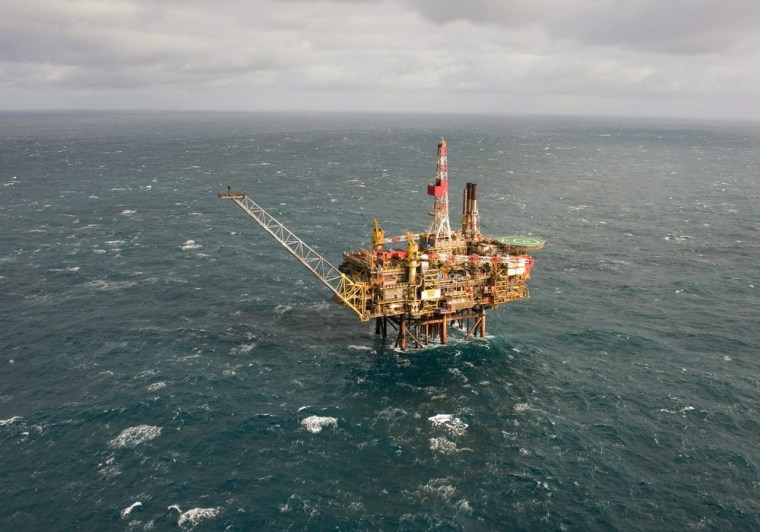Some 1,300 barrels worth of oil are believed to have leaked into the North Sea from a Royal Dutch Shell rig, Shell said Monday.
The leak came from a flow line at the Gannet Alpha platform off the Scottish coast last week. Shell said the leaking well has since been shut.
The U.K. government's Department for Energy and Climate Change said that Shell was still trying to "completely halt" any further leakage.
While the leak was a large one for the area, the department noted, it was was small compared to the BP spill in the Gulf of Mexico last year, which released nearly 5 million barrels.
The department said the oil would disperse naturally and was not expected to reach the shore.
It added that Britain's offshore oil industry had a strong safety record, "which is why it is disappointing that this spill has happened."
"We take any spill very seriously and we will be investigating the causes of the spill and learning any lessons from the response to it," the government said.
The Maritime and Coastguard Agency, which monitors the waters around Britain, has been making twice-daily flights over the area to monitor the situation.
Shell said in a statement released over the weekend that the spill covered a surface area of 19 miles by 2.7 miles and that the leak was under control.
The oil field, about 112 miles east of the city of Aberdeen, is operated by Shell and co-owned by Shell and Esso, a subsidiary of the U.S. oil firm Exxon Mobil.
Stuart Housden, director of the Royal Society for the Protection of Birds Scotland, said razorbills, puffins and guillemots that gather in the North Sea in late summer could be at risk.
"It is small compared to what we saw in the Gulf of Mexico, but it is the largest single leak that we've had for at least ten years from an offshore installation," he said, according to a report in The Scotsman newspaper.
Housden told the paper that the society had made repeated requests for information from Shell — so it could assess the danger to seabirds — without success.
"I have begun to get concerned about how difficult it is to get information out of Shell. I want to talk to them when this is all over and review the way it has been dealt with," he added.
Housden told The Scotsman that even a small spill in "the wrong place can kill hundreds, if not thousands, of birds."
Richard Dixon, director of wildlife charity WWF Scotland, also criticized Shell after a Scottish government spokesman earlier estimated the spill at 100 tonnes, or about 750 barrels.
"One hundred tonnes (about 110 U.S. tons) is a serious spill. Shell clearly didn't want to tell anybody about it until they had got it under control," he said, according to The Scotsman. "I think the government and most of the political parties are all desperate to be nice to the oil industry."
The Scottish government said it was working with Shell to monitor the spill and warn local fishing boats about it.
